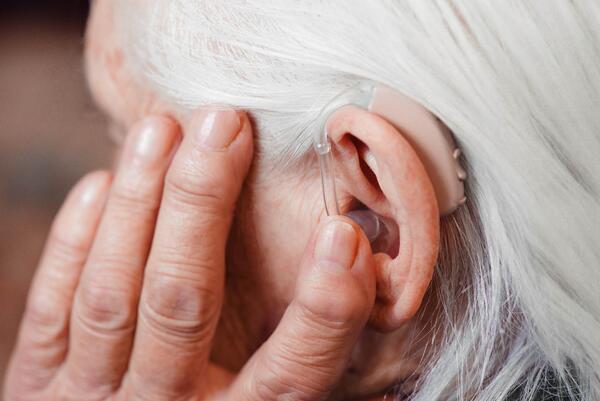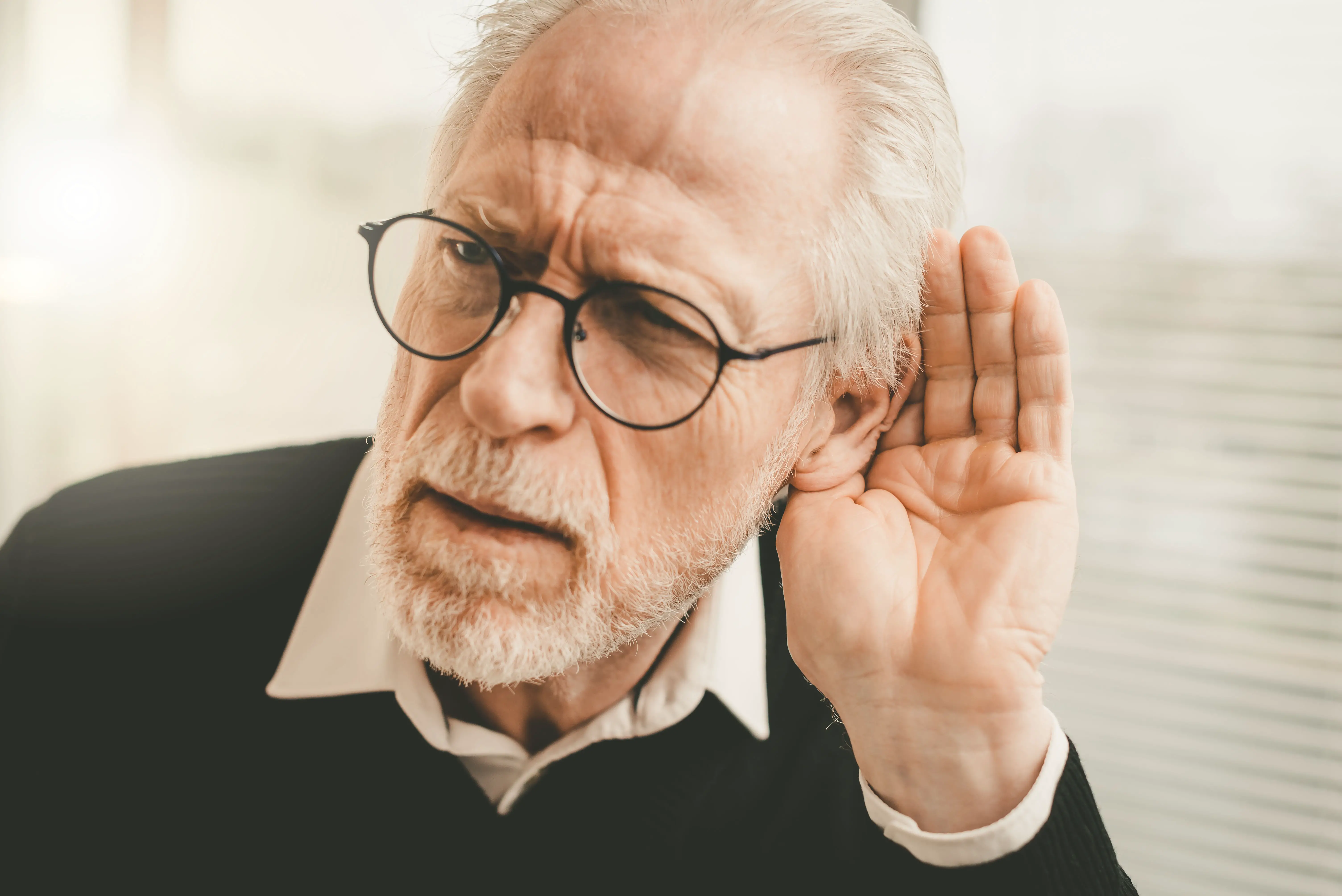
Dealing With Age-Related Hearing Loss: 10 Prevention Tips For Seniors
In the golden years of life, where wisdom and experience are celebrated, age-related hearing loss silently creeps in, altering the way seniors perceive the world around them. This underscores the critical role of early detection and proactive prevention measures.
By identifying hearing loss early, seniors can access interventions that can significantly improve their hearing capabilities, allowing them to continue engaging actively with their environment and loved ones. This article aims to provide information and support to help seniors deal with this condition.
What Is Age-Related Hearing Loss?
Age-related hearing loss, also known as presbycusis, is a form of hearing impairment that occurs as part of the natural aging process. It’s characterized by the gradual decline in hearing ability, affecting both ears typically equally and making it harder to hear and understand sounds over time. For those seeking more in-depth information on presbycusis, resources like audiologists.org offer comprehensive insights into the nature of this condition, providing valuable knowledge on how it can be managed and treated.
Causes Of Age-Related Hearing Loss
The causes of age-related hearing loss are multifaceted and often involve a combination of genetic, environmental, and health-related factors:
- Genetic Factors: There's evidence to suggest that genetics plays a role in susceptibility to presbycusis, with some individuals more predisposed to hearing loss due to their genetic makeup.
- Degeneration Of Inner Ear Structures: As people age, the structures within the inner ear, including the hair cells, begin to wear down. These hair cells are vital for converting sound vibrations into electrical signals that the brain interprets as sound. Once damaged, these cells don’t regenerate, leading to permanent hearing loss.
- Cumulative Noise Exposure: Exposure to loud noises over a lifetime can exacerbate age-related hearing loss. This includes occupational noise, music, and even everyday sounds that can cumulatively damage the ear's mechanisms.
- Health Conditions: Certain health conditions, such as diabetes and hypertension, can affect the blood supply to the inner ear, further contributing to hearing loss. Additionally, ototoxic medications can damage hearing as a side effect.
Prevention Strategies
Preventing age-related hearing loss involves a multifaceted approach centered around mitigating risk factors, embracing healthy habits, and making informed choices to protect hearing. Although the aging process itself is inevitable, adopting specific strategies can help delay or reduce the severity of hearing loss, ensuring better auditory health in the senior years.
Prioritizing Hearing Protection
One of the simplest yet most effective ways to prevent hearing loss is by consistently protecting the ears from loud noises. This means being mindful of environments that could potentially harm hearing, such as industrial workplaces, loud entertainment venues, or even busy city streets, and using protective devices like earplugs or noise-canceling headphones.
Embracing A Nutrient-Rich Diet
Nutrition plays a pivotal role in maintaining hearing health. Diets rich in vitamins and minerals, particularly antioxidants and omega-3 fatty acids, can support inner ear health. Foods such as leafy greens, berries, nuts, seeds, and fish are excellent sources of these nutrients, potentially helping to ward off age-related hearing loss.
Smart Use Of Hearing Protection Devices 
For those regularly exposed to high levels of noise, investing in advanced hearing protection devices is crucial. Today’s market offers a variety of options, including custom-fitted earplugs and digital noise-canceling earmuffs, which can significantly reduce harmful exposure without isolating the wearer from their environment entirely.
Utilizing Apps For Sound Monitoring
Technology offers innovative ways to monitor and manage noise exposure through sound level meter apps available for smartphones. These apps can alert users when surrounding noise exceeds safe listening thresholds, empowering individuals to take immediate protective action.
Supplements For Ear Health
Certain dietary supplements, such as magnesium, vitamin D, and B vitamins, have been associated with a lower risk of hearing loss. These nutrients are thought to support the nerves and structures within the ear, although it's essential to consult with a healthcare provider before starting any supplementation regimen.
Exploring Natural Therapies
Alternative approaches, including acupuncture and certain herbal supplements like ginkgo biloba, have been explored for their potential to support hearing health. While evidence of their effectiveness is mixed, they may offer additional support as part of a comprehensive approach to hearing conservation, especially for those looking for holistic prevention methods.
Regular Hearing Evaluations
Consistent hearing evaluations are paramount in the prevention strategy. These assessments can catch early signs of hearing loss, allowing individuals to adapt their prevention strategies and seek intervention sooner. Hearing health professionals can offer personalized advice based on these evaluations, tailoring prevention efforts to each individual’s needs.
Managing Chronic Health Conditions
Chronic health conditions like hypertension and diabetes are known to affect hearing health. Actively managing these conditions through medication, diet, and exercise can mitigate their impact on hearing. For instance, controlling blood sugar levels in diabetes can help prevent damage to the blood vessels in the inner ear, thus reducing the risk of hearing loss.
Reviewing Medications For Ototoxicity
Some prescription and over-the-counter medications can have ototoxic properties, potentially harming the auditory system and leading to hearing loss. Consequently, seniors must discuss their medication regimen with healthcare providers periodically. This can help identify any medicines that might pose a risk to hearing health and consider possible alternatives.
Regular Cardiovascular Exercise
Regular engagement in cardiovascular exercise such as walking, swimming, or cycling can have a profound impact on hearing health. Improved cardiovascular fitness enhances blood flow throughout the body, including to the ears, which can help maintain the health of the auditory system. An active lifestyle may reduce the risk of hearing loss by ensuring that the delicate structures of the inner ear receive adequate oxygen and nutrients.
Conclusion
Dealing with age-related hearing loss effectively hinges on a combination of vigilance, preventive measures, and proactive health management. The collective effort to prioritize hearing health today will pave the way for a future where age-related hearing loss no longer poses a barrier to a fulfilling and engaged life.